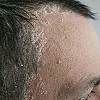Hormone therapy doesn’t seem to raise risk of cardiac death
Treating prostate cancer patients with drugs that block the activity of hormones has been linked to an increased risk of coronary artery disease and heart attack. But whether the drugs — called gonadotropin-releasing hormone (GnRH) agonists and luteinizing hormone–releasing hormone (LHRH) agonists — raise the risk of death from cardiovascular disease has been the subject of debate. In 2006, a team of researchers reported that GnRH agonists increase the risk of sudden cardiac death.
More recently, researchers from Massachusetts General Hospital randomly assigned 945 men with locally advanced prostate cancer to receive radiation therapy either alone or followed by hormone therapy with the drug goserelin (Zoladex). After a median follow-up time of 8.1 years, 117 participants had died of cardiovascular problems. But there was no significant difference in the number of cardiovascular deaths between the two groups.
However, the finding does not exclude the possibility that LHRH agonists increase the risk of death from other causes. The drugs can raise the chances of diabetes and fractures, both of which can be fatal. They can also cause weight gain and adversely affect cholesterol levels, mood, and sexual function. As a result, physicians should carefully weigh the potential risks and benefits of LHRH agonists before prescribing them.
SOURCES: Efstathiou JA, Bae K, Shipley WU, et al. Cardiovascular Mortality after Androgen Deprivation Therapy for Locally Advanced Prostate Cancer. Journal of Clinical Oncology 2009;27:92–99. PMID: 19047297.
Keating NL, O’Malley AJ, Smith MR. Diabetes and Cardiovascular Disease During Androgen Deprivation Therapy for Prostate Cancer. Journal of Clinical Oncology 2006;24:4448–56. PMID: 16983113.
Originally published April 1, 2009; last reviewed on May 3, 2011.
About the Author
Disclaimer:
As a service to our readers, Harvard Health Publishing provides access to our library of archived content. Please note the date of last review or update on all articles.
No content on this site, regardless of date, should ever be used as a substitute for direct medical advice from your doctor or other qualified clinician.















